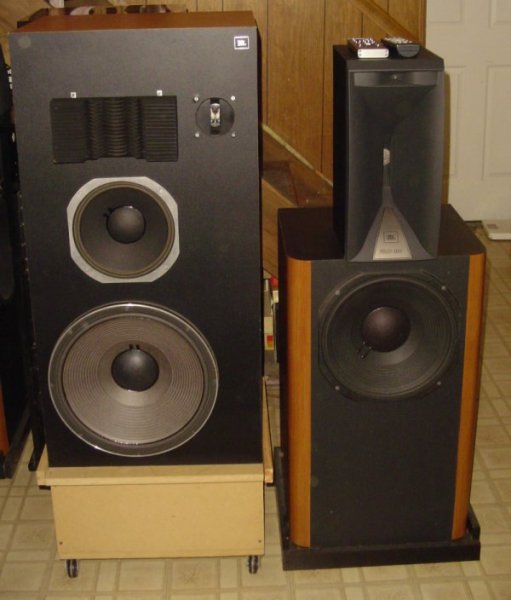Jack, I agree with most of what you said. Yeah, we've discussed manufactured active systems here, I just saw the conversation taking a turn toward the esoteric and unattainable for most people, ie: DIY, and the need to have a deep understanding in order to pull off a good-sounding active system. That's just not the case, and wanted to make sure we were clear. One thing I don't quite understand:
Not sure what you mean by a "closed system." A passive system, even one in which DAC, pre and amps are all from different manufacturers is not an open system in any real sense of the term. You can't get inside those boxes and tweak parts and parameters any easier than you can get inside a single box that contains your amps and your speakers. If you really want to, I'm sure you could get inside a pair of Adam Tensors and change the crossovers. A fool's game, probably, but you could do it.
Nah. The pro monitor is about a highly refined tool designed for critical - very critical, money, careers, reputations on the line critical - listening. Buy a pair that was very well-designed and engineered, the flexibility you've lost is the freedom to make decisions probably better left to audio engineers (like getting inside those Tensors and changing the crossovers). I don't see any utility lost. You'll have to explain that one to me.
No doubt the price/performance ratio of pro monitors - mini and otherwise - can be a whack to the side of the head compared to high end "monitors" and amplifiers of the same capability, but I don't think that's because the pro stuff is about bang for the buck; I think it points to the excessive pricing in the high end? $29k for a pair of Magico monitors that the Audiophile will hook up to another $10k (at least!) worth of amplification? In the face of the quality and prices of the best pro products, that $40k is absurd. But that doesn't make the pro stuff about "good for the money" so much as it should make you all keep one hand on your wallet at the next show.
Tim
I do not cotton to closed systems for the simple reason that I have yet to come across one that is aligned with what I want. The lack of controllable parameters is no help either. That's all there is too it.
Not sure what you mean by a "closed system." A passive system, even one in which DAC, pre and amps are all from different manufacturers is not an open system in any real sense of the term. You can't get inside those boxes and tweak parts and parameters any easier than you can get inside a single box that contains your amps and your speakers. If you really want to, I'm sure you could get inside a pair of Adam Tensors and change the crossovers. A fool's game, probably, but you could do it.
The battle cry of the mini pro monitor folks has never been purely about performance. Never. It's always been about price vs. performance. Is that a bad thing? No it isn't it, far from it. Leave the price part out of it however and the comparative lack of flexibility and consequent utility comes into stark relief.
Nah. The pro monitor is about a highly refined tool designed for critical - very critical, money, careers, reputations on the line critical - listening. Buy a pair that was very well-designed and engineered, the flexibility you've lost is the freedom to make decisions probably better left to audio engineers (like getting inside those Tensors and changing the crossovers). I don't see any utility lost. You'll have to explain that one to me.
No doubt the price/performance ratio of pro monitors - mini and otherwise - can be a whack to the side of the head compared to high end "monitors" and amplifiers of the same capability, but I don't think that's because the pro stuff is about bang for the buck; I think it points to the excessive pricing in the high end? $29k for a pair of Magico monitors that the Audiophile will hook up to another $10k (at least!) worth of amplification? In the face of the quality and prices of the best pro products, that $40k is absurd. But that doesn't make the pro stuff about "good for the money" so much as it should make you all keep one hand on your wallet at the next show.
Tim







